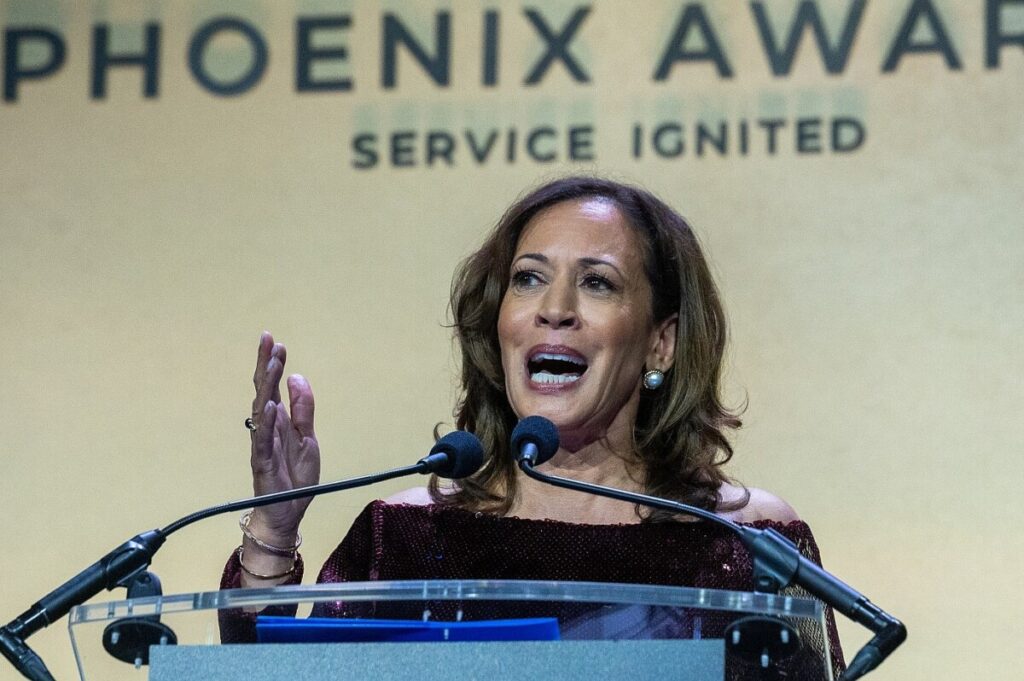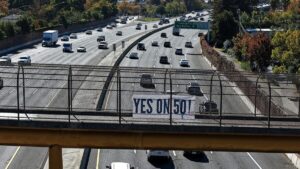Graham: Foreign journalists play hardball with Kamala
In her recent media tour promoting her campaign book “107 Days,” Vice President Kamala Harris engaged with a series of interviews across prominent liberal platforms, including ABC’s “The View” and “Good Morning America,” as well as international outlets like the BBC and Australia’s ABC. However, the interviews revealed a troubling reluctance to confront critical issues, particularly regarding her relationship with President Joe Biden and the implications of his cognitive decline. During her appearance on “The View,” co-host Sunny Hostin posed a straightforward question about how Harris differs from Biden, to which Harris struggled to provide a clear answer, stating she couldn’t think of anything. This moment highlighted a broader concern among Democrats regarding Harris’s accountability for the party’s struggles, yet the interview format largely avoided probing deeper into these significant topics.
As Harris’s international interviews unfolded, the questioning became more pointed, particularly regarding Biden’s fitness for office. BBC interviewer Laura Kuenssberg pressed Harris on her observations about Biden’s frailty, prompting Harris to assert that she had never doubted his capacity to serve. However, Kuenssberg challenged this assertion, questioning the mixed messaging it sends to the public about the qualifications necessary for the presidency versus those required for a successful campaign. Similarly, Australia’s ABC journalist Sarah Ferguson confronted Harris about her responsibility in addressing Biden’s perceived weaknesses, suggesting that his refusal to acknowledge his frailties had a direct impact on her political challenges. Harris’s responses often deflected criticism, reiterating her belief in Biden’s capabilities, but this evasion left many viewers questioning her commitment to transparency and accountability.
The stark contrast between the questions posed by American journalists and those from international counterparts raises concerns about the depth of political discourse in the U.S. While liberal networks may have aimed to create a supportive atmosphere for Harris, the lack of tough questioning ultimately undermined the opportunity for meaningful dialogue. As Harris hints at future political aspirations, including another presidential run, the reluctance to tackle these pressing issues may hinder her credibility and the public’s trust in her leadership. The media’s role in holding political figures accountable is crucial, and the disparity in questioning styles underscores the need for a more rigorous examination of political narratives, especially as the 2024 election cycle approaches.
https://www.youtube.com/watch?v=gJMNNPES5p0
Recently, Kamala Harris made the rounds of supportive liberal networks to promote her campaign book “107 Days.”
No one expected much of the interviewers, starting with ABC’s “The View,” which could have titled the interview “You Had Me at Hello.”
The biggest event in that interview was co-host Sunny Hostin confessing to the Mom-ala that she felt she’d hurt her chances by asking an obvious question: Where do you differ from Joe Biden? Harris said she couldn’t think of anything.
That shouldn’t be a destructive question. It’s an obvious question, even if the answer was exploitable.
ABC’s “Good Morning America” was no better. Co-host Michael Strahan tiptoed in with Democrat concerns: “There’s some Democrats who said that you don’t take enough responsibility for the loss. How do you respond to that?”
MSNBC’s Rachel Maddow gushed over Kamala as the “patron saint of I Told You So,” and let her subject compare Trump to a communist dictator.
All these Americans looked dreadful when the Kamala Harris book tour went international. BBC interviewer Laura Kuenssberg noticed Harris said, “I’m not done,” suggesting another presidential run. She warned: “But when you look at the bookies’ odds, they put you, as an outsider, even behind Dwayne ‘The Rock’ Johnson.” Harris claimed she’s never “listened to polls.”
Kuenssberg also went after Biden’s cognitive decline: “You write that President Biden didn’t raise his frailty with you, and you write that you didn’t really raise it with him. That’s extraordinary to read in your account.” Harris claimed she didn’t doubt his capacity to serve as president, but he lacked the capacity to run for reelection.
The BBC anchor was gobsmacked: “Isn’t it a strange message to the public to say, you know, what you need to be tougher and more able to run a political campaign than actually to be the person behind the desk in the Oval Office?”
Then came Australia’s ABC. Interviewer Sarah Ferguson also pressed on the decline question: “Didn’t you also have a responsibility? You were one of the people in the room. … Didn’t you have a responsibility as an American to step up and say something at that point?”
Harris insisted: “I did not question Joe Biden’s capacity to be president at all.”
Ferguson blamed Biden: “Wasn’t his refusal to recognize his own frailties the reason that you faced a nearly impossible task?”
When Harris shifted to saying Trump was the real challenge, Ferguson called her out: “I want to interrupt you because that is a world-class pivot, but it is not the question that I asked you, which is about Joe Biden’s failure to recognize his own frailties and what that did to you. The question is about Joe Biden. Are you still reluctant to criticize the former president?”
Harris answered: “In what regard, please?” Ferguson restated her thesis that Biden damaged her chances. Harris repeated: “He was not frail as President of the United States.”
This was about as accurate as comparing Trump to a communist dictator. It’s a colossal shame that American journalists can’t ask the questions that foreigners can.
Tim Graham is director of media analysis at the Media Research Center and executive editor of the blog NewsBusters.org.
Eric
Eric is a seasoned journalist covering General news.



